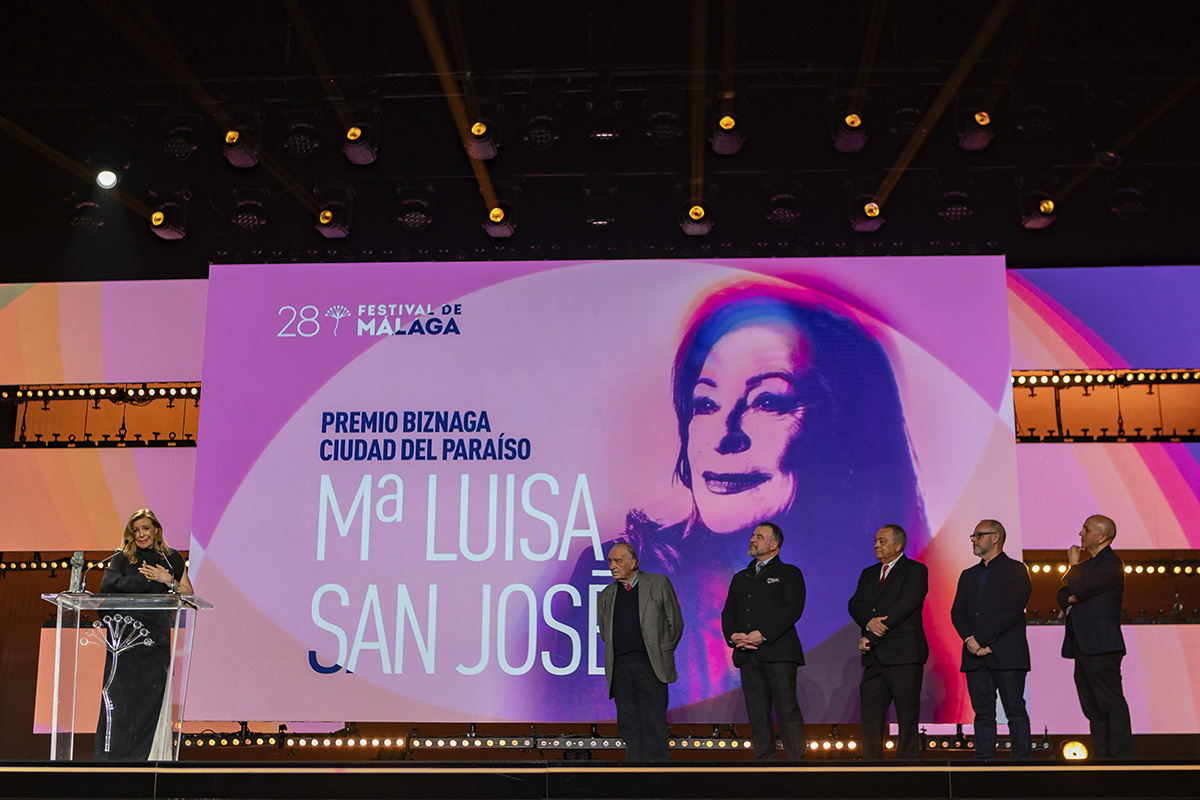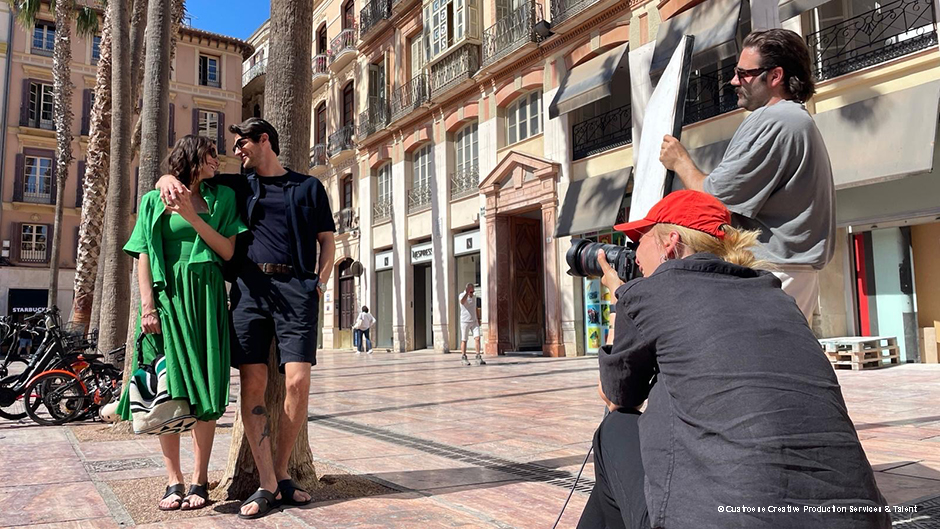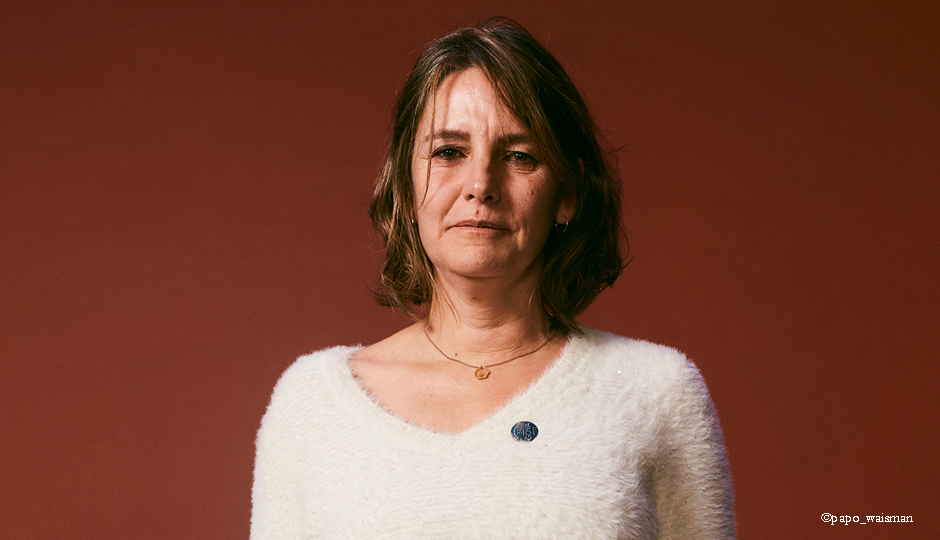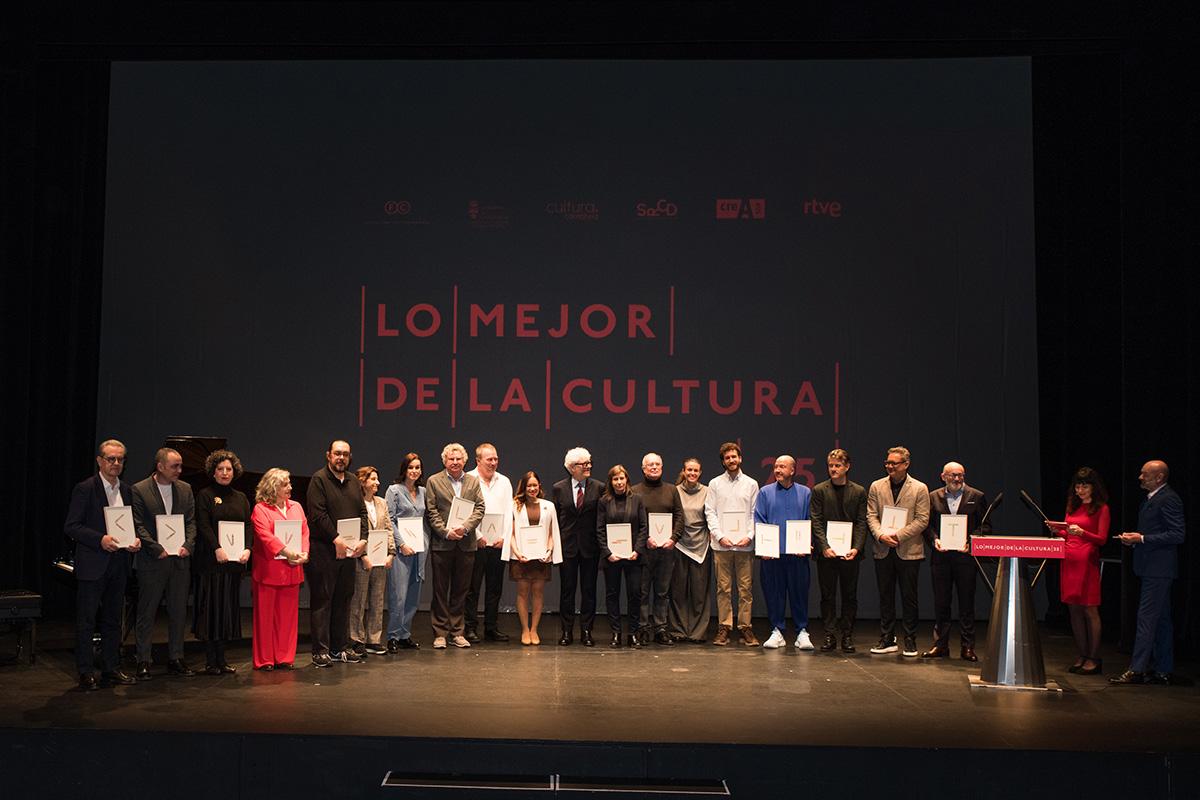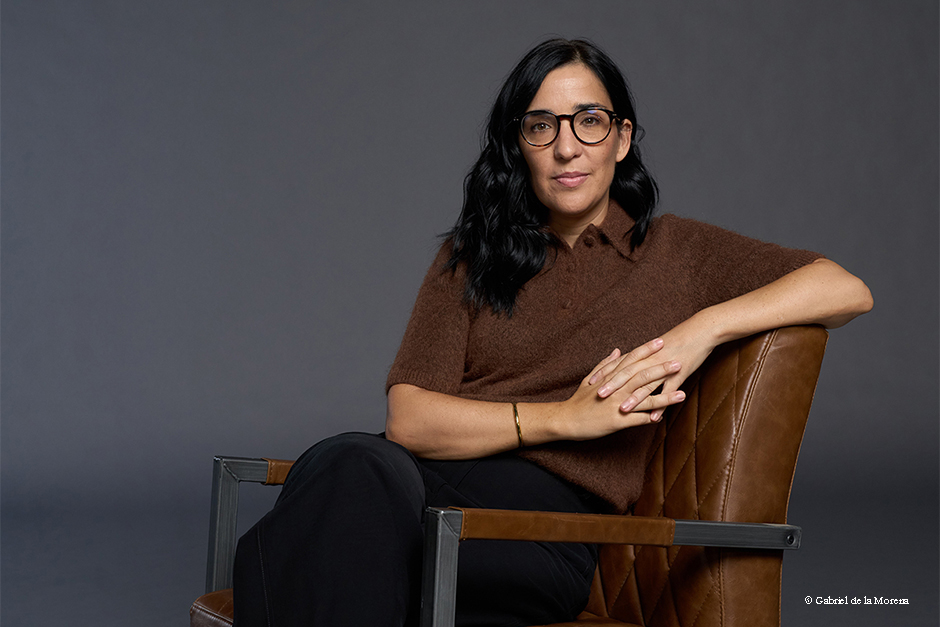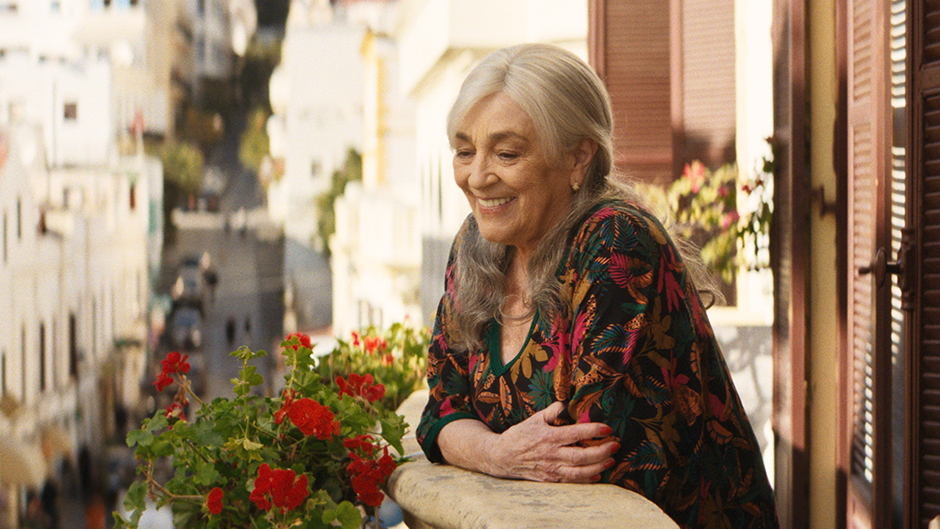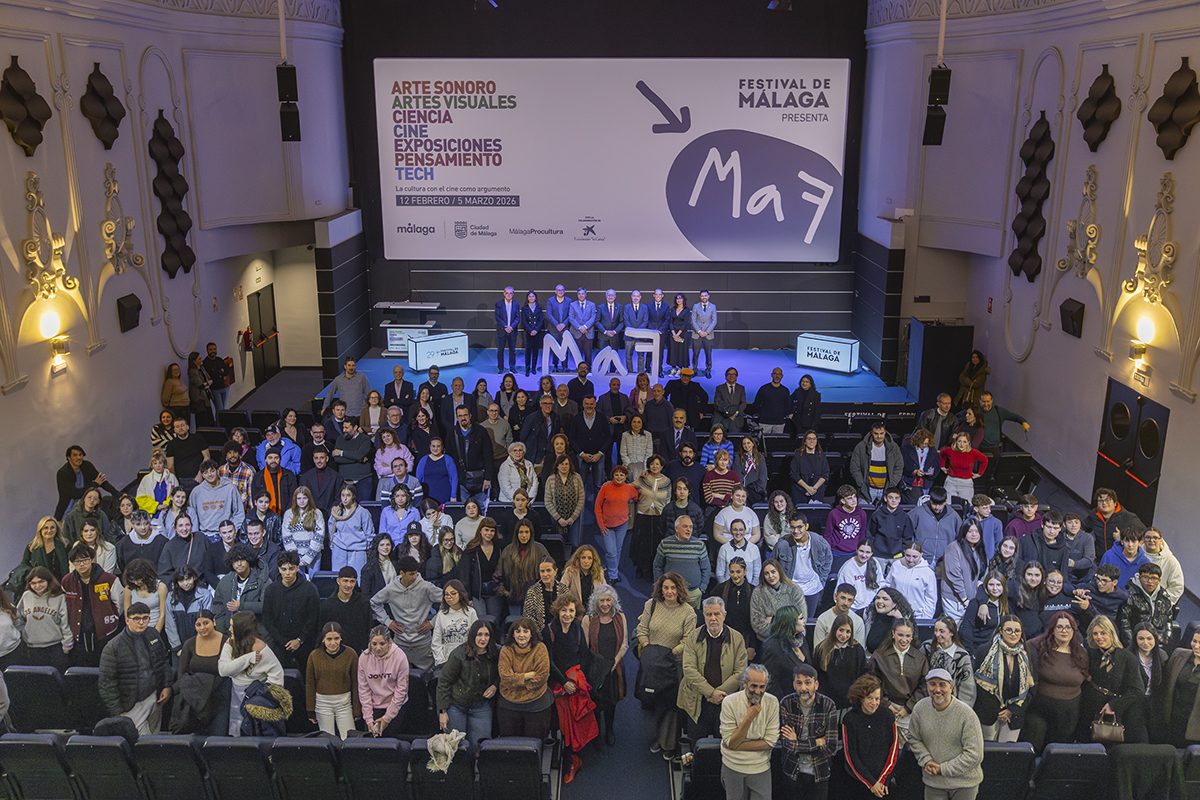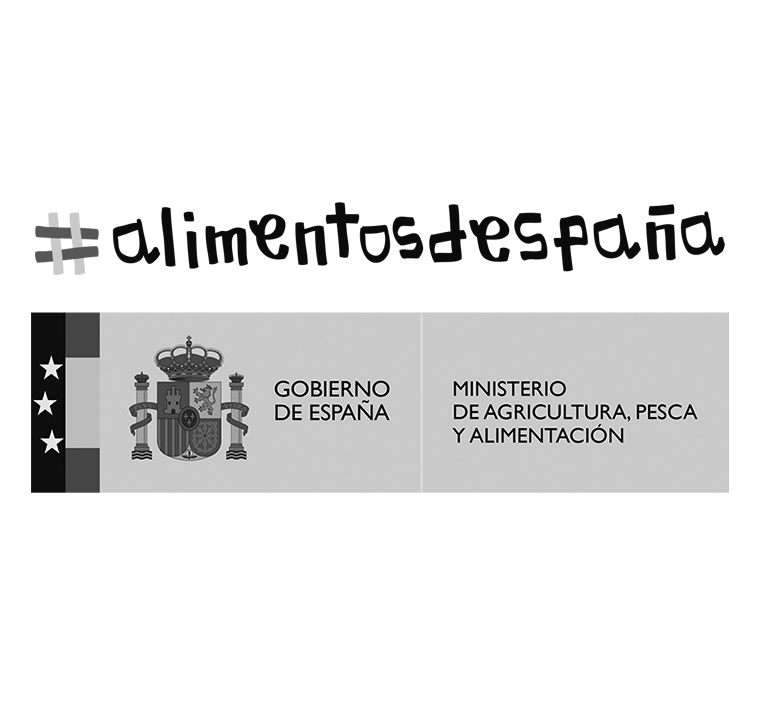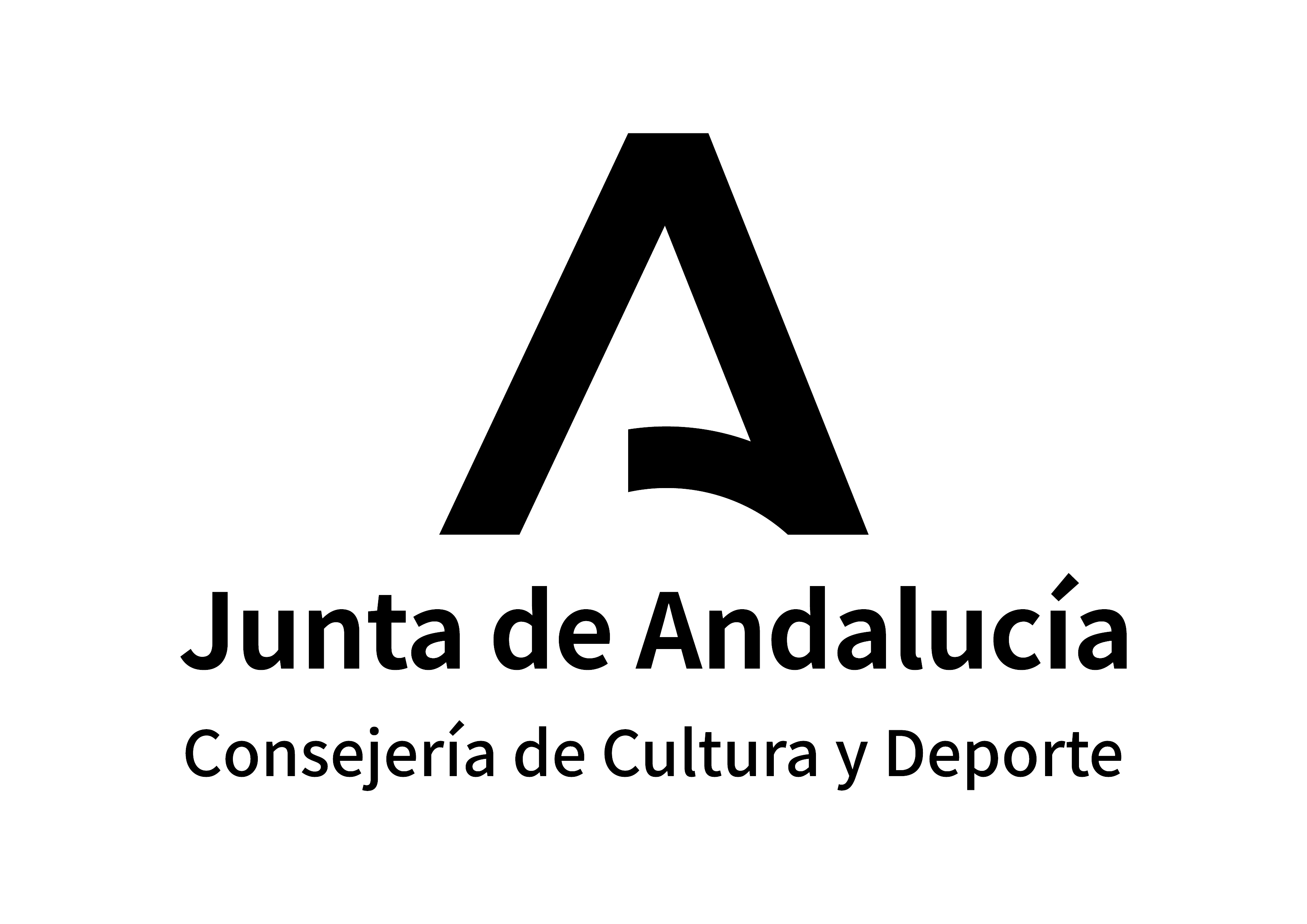María Luisa San José, an "essential" of Spanish cinema after receiving the Biznaga 'Ciudad del Paraíso'
The President of the Spanish Film Academy, Fernando Méndez-Leite, presents the actress with the Festival de Málaga award
María Luisa San José has become one of the essential Spanish filmmakers at the Festival de Málaga after receiving the Biznaga 'Ciudad del Paraíso' award at the event on Wednesday 19 March. An award for the actress that the actress received "doubly excited; firstly, because I didn't expect it and, secondly, because only the essential ones receive it". The iconic performer of the so-called Third Way of Spanish cinema and star of titles such as 'El diputado' or 'Soldadito español', has received the award from the president of the Film Academy, Fernando Méndez-Leite, after a career spanning five decades.
The performer was accompanied on stage at the Cervantes Theatre by the journalist and author of her biography "María Luisa San José: en cuerpo y alma", Pascual Vera; the journalist Luis Alegre; the president of AraFilmFest, José Antonio Aguilar; and the Malaga opera singer Carlos Álvarez. She has been defined as "a fighter": against her own shyness, against an industry that insisted on pigeonholing her, for the rights of audiovisual workers and for finding roles for women who were looking for their place in society that cinema did not offer.
.
In the meeting with the director of the Festival de Málaga, Juan Antonio Vigar, the actress reviewed her career, which began early on in the black and white development and editing department at the Madrid Films laboratories. "There I got to know the treatment of celluloid very well and I met the great directors of Spanish cinema, such as Carlos Saura and Juan Antonio Bardem, who gave me the opportunity to reveal what they shot every day. I often wondered how to tell them that I wanted to be an artist, but in my heart I knew that I would end up working with them," San José explained.
After a stint as an apprentice announcer at Radio Intercontinental, she became an advertising model at Moro Studios. From there, she made the leap to the theatre with the Antonio Garisa company, where 'Golfus de Roma', in 1965, was her first foray into theatre. "I started playing small roles in the cinema and I met the producer José Luis Dibildos, who signed me to a three-year contract."
Regarding the type of cinema of the time, María Luisa San José defended that "it was a way of telling the things that happened to us Spaniards in a comedic style, sometimes crazy, but capable of connecting with a country that suffered tremendous censorship. It allowed directors to sneak in very sharp criticism with great intelligence."
Throughout her career, she has worked with prominent film directors such as Ana Mariscal, Javier Aguirre, Eloy de la Iglesia, Mariano Ozores, Pedro Olea, Roberto Bodegas, Forges, Jesús Yagüe, Luis Alcoriza, Pedro Lazaga, Francesc Betriu, González Sinde, Giménez Rico, García Sánchez and Saura, among others. Some of her most important films include 'Hasta que el matrimonio nos separe' (1977), 'Pajarico' (1997) and 'Adiós con el corazón' (2000).
.
On television, she began participating in various theatre programmes such as Estudio 1, Pequeño Teatro and Hora 11. Her first television work was in the series 'Mañana puede ser verdad' (1964), directed by Chicho Ibáñez Serrador. Over the years, she has filmed numerous fiction series for the main channels. Her work has been recognised at festivals and competitions, including awards such as the National Show Business Union (1974), the Luis Buñuel Revelation Award (1974), and the Words for Equality Award from BPW in 2022.
Share








